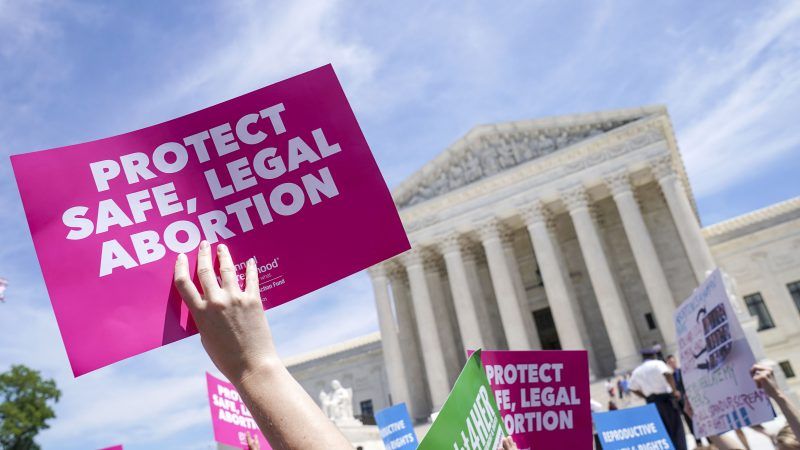What to Make of the Supreme Court's Latest Abortion Case
SCOTUS sidesteps the hard questions in Box v. Planned Parenthood of Indiana and Kentucky.

This week the U.S. Supreme Court found a way to sidestep the bitter debate over abortion. On Tuesday the Court issued an unsigned opinion in the case of Box v. Planned Parenthood of Indiana and Kentucky. At issue was a ruling by the U.S. Court of Appeals for the 7th Circuit which invalidated two Indiana provisions related to abortion. The first provision regulated how abortion providers must dispose of fetal remains. The second provision outlawed sex-, race-, and disability-selective abortions. Indiana appealed this loss to SCOTUS.
The Supreme Court, which skipped the usual oral argument stage, directly overturned the 7th Circuit's decision to strike down the fetal remains law. At the same time, the Court declined to take up Indiana's appeal of its loss on the selective abortion law. The upshot is that the first law was upheld by the Supreme Court while the second law remains invalidated by the 7th Circuit.
Also notable is the fact that the fetal remains law was upheld in a mostly non-contentious way, which is not what you would normally expect in a case that deals with such a hot-button topic. But as the Court explained in its per curiam opinion, Planned Parenthood "never argued that Indiana's law creates an undue burden on a woman's right to obtain an abortion." Instead, the organization "litigated this case on the assumption that the law does not implicate a fundamental right and is therefore subject only to rational basis review."
Because rational basis review is the Court's most deferential standard—indeed, the rational-basis test is often likened to a rubber stamp in favor of the government—the law passed muster. Case closed.
What the Court did not say was whether the outcome might have been different if Planned Parenthood had pursued a different litigation strategy under a different precedent that requires a more exacting standard of judicial scrutiny—namely, the precedent set in Planned Parenthood of Southeastern Pennsylvania v. Casey (1992), which says that the government may not impose an "undue burden" on a woman's right to obtain an abortion.
Put differently, the Supreme Court avoided the thorniest questions surrounding the case and found a way to settle the matter without provoking a broader showdown over its own abortion precedents. That fight was effectively postponed until an unknown future date.
Not every member of the Court was entirely satisfied with this compromise. Justice Sonia Sotomayor wrote briefly to say that she thought the Court should not have taken up any part of the case. Justice Ruth Bader Ginsburg also wrote separately to express that same disapproving view, arguing that "it is 'a waste of th[e] [C]ourt's resources' to take up a case simply to say we are bound by a party's 'strategic litigation choice' to invoke rational-basis review alone." Ginsburg also suggested that both Indiana laws deserved to be struck down. On the other side of the bench, Justice Clarence Thomas wrote a concurring opinion which compared abortion to eugenics. The other six justices apparently supported the Court's unsigned compromise opinion.
Earlier this month I wrote a column titled, "The Supreme Court Probably Won't Kill Roe Yet." I think I'll stick with that prediction.

Show Comments (29)